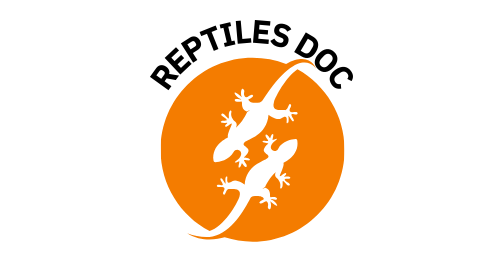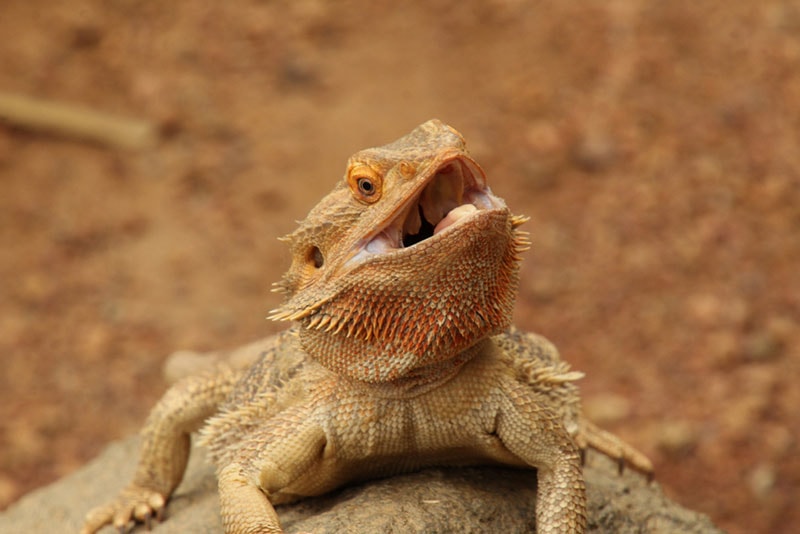Potatoes are a common staple in many human diets, but when it comes to feeding pets like bearded dragons, it’s important to know which foods are safe and beneficial for them. The question of can bearded dragons eat potatoes arises from a concern for their well-being, as some foods can be either beneficial or potentially harmful to them.
Bearded dragons should not eat potatoes. While potatoes are not toxic, they are high in carbohydrates and low in calcium, which can lead to digestive issues and nutritional imbalances. Potatoes also contain oxalates that can inhibit calcium absorption, potentially causing health problems. For a healthy diet, focus on providing leafy greens, safe vegetables, and protein sources like insects.
It’s important to explore the implications of including potatoes in their diet to ensure you’re providing the best nutrition possible for your pet. Bearded dragons, popular reptile pets, have specific dietary needs that must be met to ensure their health and well being.
As an owner, you might wonder if foods like potatoes are suitable for your bearded dragon’s diet. Understanding the nutritional content and potential risks associated with feeding potatoes to bearded dragons is crucial before considering them as a food option.
Can bearded dragons safely eat potatoes?
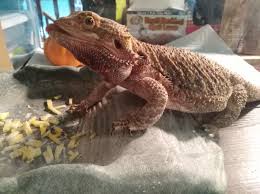
When it comes to caring for a bearded dragon, one of the most important responsibilities is providing a balanced and appropriate diet. These reptiles have specific nutritional needs, and feeding them the wrong foods can lead to health issues.
Potatoes are a common food item in human diets, but whether they are safe for bearded dragons is a question that many pet owners ask. Understanding the nutritional value of potatoes, along with the potential risks and benefits, is key to determining if they should be included in your bearded dragon’s diet.
The Nutritional Profile of Potatoes
Potatoes are starchy vegetables that are high in carbohydrates and contain small amounts of vitamins and minerals. They are a good source of vitamin C, potassium, and fiber for humans, but their nutritional profile does not align well with the dietary needs of bearded dragons.
- High in Carbohydrates: Bearded dragons require a diet that is low in carbohydrates and high in proteins and greens. The high starch content in potatoes can lead to digestive issues and weight gain in bearded dragons if fed in large amounts.
- Low in Calcium: Calcium is crucial for the health of bearded dragons, as it supports bone development and prevents metabolic bone disease (MBD). Potatoes contain low levels of calcium and an improper calcium-to-phosphorus ratio, which can inhibit calcium absorption and contribute to health problems.
- Oxalates and Solanine: Potatoes contain oxalates, which can bind to calcium and prevent it from being absorbed by the body. Additionally, green potatoes or potato sprouts contain solanine, a toxic compound that can be harmful to bearded dragons.
Potential Risks of Feeding Potatoes to Bearded Dragons
While potatoes are not inherently toxic to bearded dragons, they are not recommended as part of their regular diet due to several potential risks:
- Digestive Issues: The high carbohydrate content in potatoes can be difficult for bearded dragons to digest. Their digestive systems are not designed to process starchy foods, which can lead to bloating, constipation, and other digestive problems.
- Nutritional Imbalance: Regularly feeding potatoes to your bearded dragon can contribute to a nutritional imbalance, particularly in terms of calcium and phosphorus levels. A diet low in calcium can lead to metabolic bone disease, a serious condition that affects bone strength and health.
- Toxicity Concerns: If potatoes are not properly prepared, or if green or sprouted potatoes are fed, there is a risk of solanine toxicity. Solanine poisoning can cause symptoms such as vomiting, diarrhea, and lethargy in bearded dragons.
Healthier Alternatives to Potatoes
Given the potential risks associated with feeding potatoes to bearded dragons, it’s best to avoid including them in their diet. Instead, there are many other vegetables and greens that are both safe and beneficial for bearded dragons:
- Leafy Greens: Offer a variety of leafy greens such as collard greens, mustard greens, dandelion greens, and kale. These greens are rich in calcium and provide essential nutrients for bearded dragons.
- Vegetables: Vegetables like bell peppers, butternut squash, and zucchini are nutritious and safe options. These vegetables are low in carbohydrates and high in vitamins and minerals that support your bearded dragon’s health.
- Insects: In addition to vegetables, bearded dragons require protein from insects such as crickets, dubia roaches, and mealworms. These should be part of a balanced diet, especially for younger dragons that are still growing.
Are potatoes good for bearded dragons?
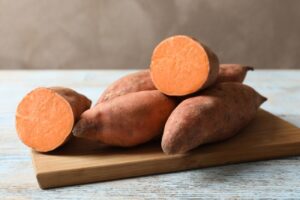
When it comes to feeding a bearded dragon, providing a diet that meets their specific nutritional needs is crucial for their health and well-being. Bearded dragons, as omnivores, require a balance of leafy greens, vegetables, and protein sources like insects.
As a responsible pet owner, you might wonder whether certain foods, like potatoes, are good for your bearded dragon. Potatoes are a staple in many human diets, but are they beneficial or harmful to these reptiles?
Nutritional Content of Potatoes
Potatoes are a tuberous vegetable known for their high carbohydrate content. While they provide some vitamins and minerals, their nutritional profile is not particularly suited to the dietary requirements of bearded dragons.
- Carbohydrates: Potatoes are rich in starch, a complex carbohydrate. While carbohydrates are an energy source for humans, bearded dragons have different metabolic needs. High carbohydrate intake is not ideal for bearded dragons and can lead to health issues such as obesity and digestive problems.
- Vitamins and Minerals: Potatoes contain small amounts of vitamins like vitamin C, vitamin B6, and potassium. However, these nutrients are not provided in the amounts or balance required by bearded dragons. More importantly, potatoes are low in calcium, which is essential for the health of bearded dragons.
- Calcium-to-Phosphorus Ratio: A proper calcium-to-phosphorus ratio is crucial for bearded dragons to prevent metabolic bone disease (MBD). Potatoes have an unfavorable calcium-to-phosphorus ratio, which can interfere with calcium absorption and contribute to bone health issues.
Feeding potatoes to bearded dragons
When caring for a bearded dragon, providing a well-balanced diet is essential for maintaining their health and vitality.
Bearded dragons are omnivores, and their dietary needs are quite specific, requiring a mix of leafy greens, vegetables, and protein sources like insects. Potatoes, a common staple in human diets, might seem like a harmless addition, but their suitability for bearded dragons is often questioned.
Understanding the implications of feeding potatoes to bearded dragons involves examining their nutritional content, potential benefits, and associated risks.
Nutritional Content of Potatoes
Potatoes are known for their high carbohydrate content, which primarily consists of starch. While they provide some vitamins and minerals, their overall nutritional profile does not align well with the dietary needs of bearded dragons.
- High Carbohydrates: Potatoes are rich in starch, a form of carbohydrate that can contribute to weight gain and digestive issues in bearded dragons if consumed in excess. Bearded dragons have a limited ability to process large amounts of carbohydrates, and a high-carb diet can lead to obesity and related health problems.
- Vitamins and Minerals: Potatoes contain small amounts of vitamin C, vitamin B6, and potassium. However, these nutrients are not present in quantities sufficient to meet the dietary needs of bearded dragons. More importantly, potatoes are low in calcium, which is critical for bone health in reptiles.
- Calcium-to-Phosphorus Ratio: Potatoes have a poor calcium-to-phosphorus ratio, which can negatively affect calcium absorption. Bearded dragons require a proper balance of calcium and phosphorus in their diet to prevent metabolic bone disease (MBD). An imbalance in this ratio can hinder calcium absorption and lead to skeletal health issues.
Potential Benefits of Feeding Potatoes
Although potatoes are not recommended as a regular food item for bearded dragons, there are a few potential benefits if they are offered occasionally and in very small amounts:
- Variety: Offering a variety of foods can be beneficial for bearded dragons, as it helps ensure they receive a broad range of nutrients. However, the benefits of potatoes in this context are limited compared to other vegetables and fruits that are more nutritionally appropriate.
Risks of Feeding Potatoes to Bearded Dragons
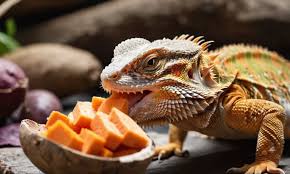
Feeding potatoes to bearded dragons poses several risks that outweigh any potential benefits:
- Digestive Problems: The high starch content in potatoes can be difficult for bearded dragons to digest. Consuming potatoes can lead to bloating, constipation, and other digestive issues, as their digestive systems are not designed to handle large amounts of carbohydrates.
- Nutritional Imbalance: Regularly feeding potatoes can contribute to a nutritional imbalance, particularly concerning calcium and phosphorus. This imbalance can lead to metabolic bone disease (MBD), characterized by weak and brittle bones, as well as other health problems.
- Toxicity Concerns: Green or sprouted potatoes contain solanine, a toxic compound that can be harmful to bearded dragons. Solanine poisoning can cause symptoms such as diarrhea, vomiting, and lethargy, which can pose serious health risks.
Healthier Alternatives to Potatoes
Instead of potatoes, there are many other foods that are safer and more nutritionally appropriate for bearded dragons:
- Leafy Greens: Leafy greens like collard greens, dandelion greens, mustard greens, and turnip greens are excellent sources of calcium and essential vitamins. These greens should be a staple in a bearded dragon’s diet.
- Vegetables: Vegetables such as butternut squash, bell peppers, and zucchini provide important nutrients without the risks associated with potatoes. These vegetables are low in carbohydrates and high in vitamins and minerals that support overall health.
- Insects: Protein sources like crickets, dubia roaches, and mealworms are crucial for bearded dragons, especially for growing juveniles. These insects offer the necessary protein and other nutrients for proper growth and development.
Potatoes in bearded dragon diet
When caring for a bearded dragon, ensuring that their diet is well-balanced and nutritious is crucial for their overall health and well-being. As omnivores, bearded dragons require a variety of foods, including leafy greens, vegetables, and protein sources.
Potatoes, a common staple in human diets, may seem like a harmless option, but their suitability for bearded dragons warrants careful consideration. This detailed exploration examines the role of potatoes in a bearded dragon’s diet, highlighting their nutritional profile, potential benefits, risks, and better alternatives.
Nutritional Profile of Potatoes
Potatoes are rich in carbohydrates and provide some vitamins and minerals, but their nutritional composition does not align well with the dietary needs of bearded dragons.
- Carbohydrates: Potatoes are high in starch, a type of carbohydrate. Bearded dragons have a limited ability to process large amounts of carbohydrates, and a diet high in starch can lead to obesity and digestive issues.
- Vitamins and Minerals: Potatoes contain vitamins such as vitamin C and B6, and minerals like potassium. However, these nutrients are present in insufficient quantities to meet the specific needs of bearded dragons. More critically, potatoes are low in calcium, which is essential for bone health.
- Calcium-to-Phosphorus Ratio: The ratio of calcium to phosphorus in potatoes is not ideal for bearded dragons. An imbalanced calcium-to-phosphorus ratio can impair calcium absorption, increasing the risk of metabolic bone disease (MBD), a condition that affects bone strength and development.
Potential Benefits of Potatoes
While potatoes are not recommended as a staple food for bearded dragons, they might offer some limited benefits in very small amounts:
- Dietary Variety: Offering a variety of foods can help ensure that bearded dragons receive a broad range of nutrients. However, the benefits of including potatoes are minimal compared to other vegetables and fruits that are more suitable for their diet.
Risks of Feeding Potatoes to Bearded Dragons
Feeding potatoes to bearded dragons comes with several risks that can outweigh any potential benefits:
- Digestive Issues: The high carbohydrate and starch content in potatoes can be difficult for bearded dragons to digest. This can lead to digestive problems such as bloating, constipation, and discomfort.
- Nutritional Imbalance: Regular inclusion of potatoes in the diet can contribute to an imbalance in essential nutrients, particularly calcium and phosphorus. This imbalance can lead to health issues such as metabolic bone disease.
- Toxicity Risks: Green or sprouted potatoes contain solanine, a toxic compound that can cause symptoms like vomiting, diarrhea, and lethargy in bearded dragons. Ensuring potatoes are free from these toxins is critical if they are ever fed.
Healthier Alternatives to Potatoes
To provide a more balanced and appropriate diet for bearded dragons, consider these healthier alternatives:
- Leafy Greens: Offer a variety of leafy greens such as collard greens, dandelion greens, and mustard greens. These are rich in calcium and other essential nutrients that support overall health.
- Vegetables: Include vegetables like butternut squash, bell peppers, and zucchini. These options provide important vitamins and minerals without the risks associated with potatoes.
- Protein Sources: Incorporate protein-rich insects such as crickets, dubia roaches, and mealworms into their diet. These are essential for the growth and development of bearded dragons.
Can bearded dragons digest potatoes?
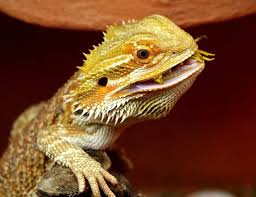
Bearded dragons are popular reptile pets known for their omnivorous diets, which typically include a mix of leafy greens, vegetables, and insects. When it comes to feeding these reptiles, it’s important to choose foods that align with their digestive capabilities and nutritional needs.
Potatoes, a staple in many human diets, might seem like a benign option, but their suitability for bearded dragons is worth exploring. This detailed examination addresses whether bearded dragons can effectively digest potatoes, considering their nutritional content, digestive system, and potential issues.
Nutritional Composition of Potatoes
Potatoes are known for their high starch content and provide a range of nutrients such as vitamins C and B6, and minerals like potassium. However, their nutritional profile does not align well with the dietary needs of bearded dragons:
- High Starch Content: Potatoes are rich in carbohydrates, particularly starch. While humans can digest starch effectively, bearded dragons have a more limited ability to process high-carb foods.
- Low Nutritional Value: Potatoes offer minimal calcium, which is crucial for bone health in bearded dragons. They also have an imbalanced calcium-to-phosphorus ratio, which can negatively affect calcium absorption.
Digestive System of Bearded Dragons
Bearded dragons have a digestive system adapted to process a diet consisting of leafy greens, vegetables, and insects. Here’s how this system interacts with potatoes:
- Enzymatic Breakdown: Bearded dragons produce digestive enzymes to break down food. However, their digestive enzymes are optimized for proteins, fats, and fibrous plant material rather than high-starch foods like potatoes. This mismatch can result in inefficient digestion of starches.
- Digestive Efficiency: The digestive tract of bearded dragons is not well-suited to handle large amounts of carbohydrates. High-starch foods such as potatoes can be difficult for them to digest, potentially leading to digestive issues.
Potential Digestive Issues
Feeding potatoes to bearded dragons can lead to several digestive problems:
- Bloating and Gas: The high starch content in potatoes can ferment in the digestive tract, leading to bloating and gas. This can cause discomfort and may interfere with normal digestion.
- Constipation: The fibrous texture and high carbohydrate content of potatoes can contribute to constipation in bearded dragons. Constipation can lead to further health complications and discomfort.
- Inefficient Nutrient Absorption: Since bearded dragons are not optimized to digest high-starch foods, the nutrients in potatoes may not be absorbed efficiently. This can contribute to nutritional deficiencies.
Risks Associated with Potato Consumption
In addition to digestive issues, there are other risks related to feeding potatoes to bearded dragons:
- Nutritional Imbalance: Potatoes are low in calcium and have a poor calcium-to-phosphorus ratio, which can lead to an imbalance affecting calcium absorption. This imbalance can contribute to metabolic bone disease (MBD), a serious condition affecting bone health.
- Toxic Compounds: Green or sprouted potatoes contain solanine, a toxic compound that can cause symptoms such as vomiting, diarrhea, and lethargy. Solanine toxicity poses a significant health risk to bearded dragons.
Healthier Dietary Choices
To support optimal digestion and health in bearded dragons, it is advisable to avoid potatoes and focus on more suitable foods:
- Leafy Greens: Offer a variety of leafy greens such as collard greens, mustard greens, and dandelion greens, which provide essential nutrients and are easier for bearded dragons to digest.
- Vegetables: Include vegetables like squash, bell peppers, and zucchini, which are lower in starch and offer better nutritional profiles for bearded dragons.
- Protein Sources: Incorporate insects such as crickets, dubia roaches, and mealworms, which provide necessary protein and nutrients for growth and development.
Potatoes for bearded dragon health
Bearded dragons are fascinating reptiles known for their varied diet, which includes leafy greens, vegetables, and insects. Ensuring their health requires careful consideration of their dietary choices. While potatoes are a staple food for many people, their suitability for bearded dragons is often questioned. T
Nutritional Profile of Potatoes
Potatoes are rich in carbohydrates and provide some vitamins and minerals, but their nutritional profile does not align well with the needs of bearded dragons.
- High Carbohydrates: Potatoes are primarily composed of starch, a carbohydrate that bearded dragons find difficult to digest. Excessive carbohydrate intake can lead to digestive issues and obesity.
- Vitamins and Minerals: Potatoes contain vitamins like vitamin C and B6, and minerals such as potassium. However, these nutrients are not present in sufficient quantities to significantly benefit bearded dragons. More importantly, potatoes are low in calcium, which is critical for maintaining bone health.
- Calcium-to-Phosphorus Ratio: Potatoes have a poor calcium-to-phosphorus ratio, which can disrupt calcium absorption. Proper calcium-to-phosphorus balance is essential for preventing metabolic bone disease (MBD), a serious condition that affects the skeletal system.
Potential Benefits of Potatoes
While potatoes are not ideal for bearded dragons, they might offer limited benefits in specific contexts:
- Dietary Variety: Offering a variety of foods can help ensure that bearded dragons receive a range of nutrients. However, the benefits of including potatoes are minimal compared to other more suitable vegetables.
Risks of Feeding Potatoes
Feeding potatoes to bearded dragons can pose several risks:
- Digestive Issues: The high starch content in potatoes can lead to digestive problems such as bloating, gas, and constipation. Bearded dragons have a digestive system better suited to handle high-fiber, low-carbohydrate foods.
- Nutritional Imbalance: Regularly feeding potatoes can contribute to an imbalance in essential nutrients. Potatoes are low in calcium and have an unfavorable calcium-to-phosphorus ratio, increasing the risk of metabolic bone disease.
- Toxicity Risks: Green or sprouted potatoes contain solanine, a toxic compound that can be harmful to bearded dragons. Solanine poisoning can cause symptoms like vomiting, diarrhea, and lethargy.
Alternative Foods for Bearded Dragons
To ensure optimal health and nutrition, consider these alternatives to potatoes:
- Leafy Greens: Provide a variety of leafy greens such as collard greens, mustard greens, and dandelion greens. These are rich in calcium and essential vitamins, making them better suited for bearded dragons.
- Vegetables: Offer vegetables like butternut squash, bell peppers, and zucchini. These are lower in carbohydrates and provide beneficial nutrients without the risks associated with potatoes.
- Protein Sources: Include insects such as crickets, dubia roaches, and mealworms in their diet. These provide essential protein and other nutrients necessary for growth and overall health.
Bearded dragons and starchy foods like potatoes
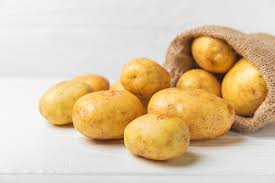
Bearded dragons are versatile omnivores, consuming a variety of foods to meet their nutritional needs. Their diet typically includes leafy greens, vegetables, and insects. However, the suitability of certain foods, particularly starchy ones like potatoes, is a topic of concern for many pet owners.
Understanding the impact of starchy foods on bearded dragons is crucial for maintaining their health and well-being. This detailed exploration addresses why starchy foods like potatoes are not ideal for bearded dragons, considering their nutritional profile, potential health impacts, and alternatives for a balanced diet.
Nutritional Profile of Starchy Foods
Starchy foods, such as potatoes, are high in carbohydrates and have specific nutritional characteristics that may not align with the dietary needs of bearded dragons.
- High Carbohydrates: Potatoes are rich in starch, a type of carbohydrate. While carbohydrates are a primary energy source for humans, bearded dragons have different metabolic needs. Their digestive systems are not well-equipped to process large amounts of carbohydrates, leading to potential health issues.
- Low Nutritional Value: Potatoes provide some vitamins and minerals, such as vitamin C and potassium, but they are low in calcium, an essential nutrient for bearded dragons. Adequate calcium intake is crucial for maintaining healthy bones and preventing metabolic bone disease (MBD).
- Calcium-to-Phosphorus Ratio: Potatoes have an unfavorable calcium-to-phosphorus ratio. Proper calcium-to-phosphorus balance is vital for effective calcium absorption. An imbalance can inhibit calcium uptake, contributing to skeletal health problems.
Health Impacts of Starchy Foods on Bearded Dragons
Feeding starchy foods like potatoes to bearded dragons can lead to several adverse health effects:
- Digestive Issues: Bearded dragons have a digestive system adapted to handle high-fiber, low carbohydrate foods. The high starch content in potatoes can cause digestive problems such as bloating, gas, and constipation. The fermentation of starches can disrupt normal digestive function.
- Nutritional Imbalances: Regular consumption of starchy foods like potatoes can result in nutritional imbalances. Potatoes lack the necessary nutrients and have an imbalanced calcium-to-phosphorus ratio, which can lead to deficiencies and conditions like metabolic bone disease.
- Obesity: High carbohydrate intake from starchy foods can contribute to weight gain and obesity in bearded dragons. Excess weight can strain their organs and lead to further health complications, including reduced mobility and a shortened lifespan.
- Toxicity Risks: Potatoes, especially those that are green or sprouted, contain solanine, a toxic compound. Solanine can cause symptoms such as vomiting, diarrhea, and lethargy. It is essential to avoid feeding potatoes that have any green coloration or sprouts.
Healthier Dietary Alternatives
To support your bearded dragon’s health, consider these more suitable food options:
- Leafy Greens: Provide a variety of leafy greens such as collard greens, mustard greens, and dandelion greens. These are high in calcium and other essential nutrients, supporting overall health and bone strength.
- Vegetables: Offer vegetables like butternut squash, bell peppers, and zucchini. These are lower in carbohydrates and provide essential vitamins and minerals without the risks associated with starchy foods.
- Protein Sources: Include protein-rich insects such as crickets, dubia roaches, and mealworms. These insects offer necessary protein and other nutrients crucial for growth and development.
Why avoid feeding potatoes to bearded dragons?
Bearded dragons are popular reptiles with a diet that typically includes a mix of leafy greens, vegetables, and insects. Ensuring their health requires careful selection of their food, taking into account their specific dietary needs and digestive capabilities. Potatoes, a common and nutritious food for humans, are often considered for inclusion in bearded dragon diets.
However, feeding potatoes to these reptiles can pose several risks. This detailed explanation explores why potatoes should be avoided in a bearded dragon’s diet, focusing on their nutritional profile, potential health risks, and better alternatives.
Nutritional Profile of Potatoes
Potatoes are known for their high carbohydrate content and provide some vitamins and minerals. However, their nutritional profile is not well-suited for bearded dragons:
- High Carbohydrates: Potatoes are primarily composed of starch, a carbohydrate that is difficult for bearded dragons to digest. Their digestive systems are adapted to process high-fiber, low-carbohydrate foods rather than starchy substances.
- Low Calcium Content: Potatoes have a low calcium content, which is crucial for maintaining strong bones in bearded dragons. Insufficient calcium intake can lead to bone health problems and conditions like metabolic bone disease (MBD).
- Imbalanced Calcium-to-Phosphorus Ratio: Potatoes have an unfavorable calcium-to-phosphorus ratio, which can negatively affect calcium absorption. Proper balance between calcium and phosphorus is essential for preventing nutritional imbalances and supporting bone health.
Digestive Challenges
Feeding potatoes to bearded dragons can lead to several digestive issues:
- Difficulty in Digestion: Bearded dragons have a digestive system that is not well-equipped to handle high-starch foods like potatoes. The high carbohydrate content can cause bloating, gas, and constipation, disrupting normal digestive function.
- Potential for Gastrointestinal Distress: The fermentation of starches in the digestive tract can lead to gastrointestinal distress, including discomfort and potential digestive upset. This can affect the overall health and well-being of the bearded dragon.
Health Risks
In addition to digestive challenges, there are several health risks associated with feeding potatoes to bearded dragons:
- Nutritional Imbalances: Potatoes do not provide the essential nutrients needed for a balanced diet and can contribute to nutritional imbalances. Their low calcium and high carbohydrate content can lead to deficiencies and health issues such as metabolic bone disease.
- Obesity Risk: The high carbohydrate content in potatoes can contribute to weight gain and obesity in bearded dragons. Obesity can lead to various health problems, including decreased mobility and an increased risk of other health conditions.
- Toxicity Concerns: Green or sprouted potatoes contain solanine, a toxic compound that can be harmful to bearded dragons. Solanine poisoning can cause symptoms such as vomiting, diarrhea, and lethargy. It is crucial to avoid feeding potatoes that have any green coloration or sprouts to prevent toxicity.
Can baby bearded dragons eat potatoes?
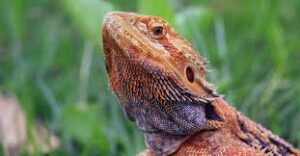
When it comes to the care of baby bearded dragons, providing a well-balanced diet is crucial for their growth and development. Baby bearded dragons, or hatchlings, have specific nutritional requirements to support their rapid growth and healthy development.
While potatoes are a common food for humans, their suitability for baby bearded dragons is questionable. This detailed analysis explores whether baby bearded dragons can safely eat potatoes, considering their nutritional needs, potential health risks, and recommended dietary choices.
Nutritional Needs of Baby Bearded Dragons
Baby bearded dragons have distinct dietary requirements compared to adults. Their diet must support their rapid growth and development, including:
- High Protein Content: Baby bearded dragons require a diet high in protein to support their growth. This includes insects like crickets, mealworms, and dubia roaches, which provide essential protein and nutrients.
- Calcium and Vitamin D: Adequate calcium is critical for bone development, while vitamin D helps with calcium absorption. A proper balance of these nutrients is necessary to prevent metabolic bone disease (MBD) and other health issues.
- Variety of Vegetables: While protein is essential, a variety of vegetables is also needed to provide necessary vitamins and minerals. Leafy greens and other vegetables should be included in their diet, but with careful consideration of their nutritional profiles.
Nutritional Profile of Potatoes
Potatoes, although nutritious for humans, do not meet the specific needs of baby bearded dragons:
- High Carbohydrate Content: Potatoes are rich in starch, a type of carbohydrate that is difficult for bearded dragons to digest, especially for young ones. High carbohydrate intake can lead to digestive issues and imbalances.
- Low Calcium Content: Potatoes are low in calcium, a crucial nutrient for the developing bones of baby bearded dragons. Insufficient calcium can lead to developmental issues and metabolic bone disease.
- Imbalanced Calcium-to-Phosphorus Ratio: Potatoes have an unfavorable calcium-to-phosphorus ratio, which can interfere with calcium absorption. This imbalance can contribute to nutritional deficiencies and bone health problems.
Potential Health Risks for Baby Bearded Dragons
Feeding potatoes to baby bearded dragons poses several risks:
- Digestive Problems: Baby bearded dragons have sensitive digestive systems that are not well equipped to handle high-starch foods like potatoes. Feeding potatoes can lead to digestive issues such as bloating, gas, and constipation.
- Nutritional Imbalance: Potatoes lack the essential nutrients needed for baby bearded dragons and can contribute to nutritional imbalances. The low calcium content and high carbohydrate levels can negatively impact their growth and overall health.
- Risk of Toxicity: Green or sprouted potatoes contain solanine, a toxic compound that can be harmful to bearded dragons. Solanine poisoning can cause symptoms like vomiting, diarrhea, and lethargy, which can be particularly dangerous for young reptiles.
Recommended Dietary Choices for Baby Bearded Dragons
To ensure optimal growth and health, focus on providing a diet that meets the specific needs of baby bearded dragons:
- Protein-Rich Insects: Offer a variety of insects such as crickets, mealworms, and dubia roaches. These insects provide the necessary protein and nutrients for growth.
- Leafy Greens: Include leafy greens like collard greens, mustard greens, and dandelion greens. These are rich in calcium and essential vitamins, supporting healthy development.
- Safe Vegetables: Provide other vegetables such as squash and bell peppers, which are lower in carbohydrates and more suited to their nutritional needs.
Safe vegetables for bearded dragons (potato comparison)
Bearded dragons are omnivores with dietary needs that require a careful balance of proteins, vitamins, minerals, and fiber. When considering what to feed them, it’s important to choose vegetables that align with their nutritional requirements.
Potatoes, though commonly consumed by humans, are not ideal for bearded dragons due to their high carbohydrate content and low calcium levels. This detailed analysis compares safe vegetables for bearded dragons with potatoes, highlighting why certain vegetables are better choices for their diet.
Conclusion
Finally, while potatoes are a nutritious food for humans, can bearded dragons eat potatoes? They are not suitable for bearded dragons. Potatoes are high in carbohydrates, particularly starch, which can be difficult for bearded dragons to digest.
They also have a low calcium content and an unfavorable calcium to-phosphorus ratio, which can lead to nutritional imbalances and increase the risk of metabolic bone disease. Additionally, potatoes offer limited nutritional benefits for bearded dragons and can cause digestive issues such as bloating and constipation.
For the health and well-being of your bearded dragon, it is best to avoid feeding them potatoes and instead opt for more appropriate vegetables like collard greens, mustard greens, butternut squash, and bell peppers, which provide the necessary nutrients without the risks associated with potatoes.
